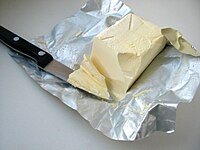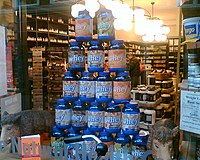
Effects of free choice and outcome valence on the sense of agency: evidence from measures of intentional binding and feelings of control
Sign Up to like & getrecommendations! Published in 2017 at "Experimental Brain Research"
DOI: 10.1007/s00221-017-5112-3
Abstract: Everyday actions can be characterized by whether they are freely chosen or commanded by external stimuli, and whether they produce pleasant or unpleasant outcomes. To assess how these aspects of actions affect the sense of… read more here.
Keywords: free choice; sense agency; choice outcome; intentional binding ... See more keywords

Smaller backward crosstalk effects for free choice tasks are not the result of immediate conflict adaptation
Sign Up to like & getrecommendations! Published in 2018 at "Cognitive Processing"
DOI: 10.1007/s10339-018-0887-0
Abstract: In dual-task situations, mutual interference phenomena are often observed. One particularly interesting example of such phenomena is that even Task 1 performance is improved if Task 2 requires a compatible (e.g., both responses are given… read more here.
Keywords: task; free choice; conflict adaptation; choice tasks ... See more keywords

Free choice reasons
Sign Up to like & getrecommendations! Published in 2017 at "Synthese"
DOI: 10.1007/s11229-017-1540-7
Abstract: I extend theories of nonmonotonic reasoning to account for reasons allowing free choice. My approach works with a wide variety of approaches to nonmonotonic reasoning and explains the connection between reasons for kinds of action… read more here.
Keywords: free choice; choice reasons; choice;

The effects of overnight nutrient intake on hypothalamic inflammation in a free-choice diet-induced obesity rat model
Sign Up to like & getrecommendations! Published in 2018 at "Appetite"
DOI: 10.1016/j.appet.2017.10.006
Abstract: Consumption of fat and sugar induces hyperphagia and increases the prevalence of obesity and diabetes type 2. Low-grade inflammation in the hypothalamus, a key brain area involved in the regulation of energy homeostasis is shown… read more here.
Keywords: free choice; fat sugar; inflammation; hypothalamic inflammation ... See more keywords

Living car-free by choice in a sprawling city: Desirable and … possible?
Sign Up to like & getrecommendations! Published in 2021 at "Case studies on transport policy"
DOI: 10.1016/j.cstp.2021.04.001
Abstract: Abstract This exploratory study examines the motivations of people who live “car-free” by choice in Brisbane, Australia. The Theory of Planned Behaviour is employed as a guiding framework for the analysis. Unlike the “car-less”, the… read more here.
Keywords: free choice; car; car free; living car ... See more keywords

Choice changes preferences, not merely reflects them: A meta-analysis of the artifact-free free-choice paradigm.
Sign Up to like & getrecommendations! Published in 2021 at "Journal of personality and social psychology"
DOI: 10.1037/pspa0000263
Abstract: One of the prominent, by now seminal, paradigms in the research tradition of cognitive dissonance (Festinger, 1957) is the free-choice paradigm developed by Brehm (1956) to measure choice-induced preference change. Some 50 years after Brehm… read more here.
Keywords: paradigm; free choice; preference change; choice ... See more keywords

Effect of protein source and nonroughage NDF content in finishing diets of feedlot cattle fed free-choice hay on growth performance and carcass characteristics
Sign Up to like & getrecommendations! Published in 2021 at "Translational Animal Science"
DOI: 10.1093/tas/txab224
Abstract: Abstract One-hundred twenty crossbreed steers (initial body weight (BW) 566 ± 42 kg) were used to evaluate the interaction of protein source (PS) and nonroughage NDF content (NRFC) in finishing diets of feedlot cattle fed… read more here.
Keywords: performance; effect protein; growth; protein source ... See more keywords

Perinatal free‐choice of a high‐calorie low‐protein diet affects leptin signaling through IRS1 and AMPK dephosphorylation in the hypothalami of female rat offspring in adulthood
Sign Up to like & getrecommendations! Published in 2019 at "Acta Physiologica"
DOI: 10.1111/apha.13244
Abstract: We aimed to investigate whether a dysregulated maternal diet during gestation and lactation induces long‐lasting changes in the hypothalamic control of feeding behavior in the offspring and whether this effect is sex specific. read more here.
Keywords: free choice; low protein; choice high; perinatal free ... See more keywords

Caspar Langenhert on Free Choice, Causation, and the Rejection of Calvinism
Sign Up to like & getrecommendations! Published in 2020 at "Church History and Religious Culture"
DOI: 10.1163/18712428-10002007
Abstract: This article provides an account of how Caspar Langenhert (1661–c. 1730) attempted to reconcile teaching a controversial “egoist” metaphysics in Paris with his reasons for rejecting Calvinism, leaving the Netherlands, and joining the Catholic Church. Langenhert… read more here.
Keywords: calvinism; free choice; caspar langenhert; langenhert free ... See more keywords

Effects of free-choice pasture access on lameness recovery and behavior of lame dairy cattle.
Sign Up to like & getrecommendations! Published in 2022 at "Journal of dairy science"
DOI: 10.3168/jds.2021-21042
Abstract: Lameness is a common condition in dairy cows. Free-choice access to pasture may benefit lame cows by providing a softer and more comfortable lying and standing surface; however, the effects of this system on lameness… read more here.
Keywords: pasture; free choice; dairy; pasture access ... See more keywords

Enhancing free choice masked priming via switch trials during repeated practice
Sign Up to like & getrecommendations! Published in 2022 at "Frontiers in Psychology"
DOI: 10.3389/fpsyg.2022.927234
Abstract: The masked priming paradigm has been extensively used to investigate the indirect impacts of unconscious stimuli on conscious behaviors, and the congruency effect of priming on free choices has gained increasing attention. Free choices allow… read more here.
Keywords: effect; free choice; choice; masked priming ... See more keywords